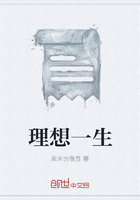And Marie Antoinette knew all these intrigues which were forged by the prince in Coblentz against herself--knew about all the calumnies that were set in circulation there; she read the libels and pamphlets which the storm-wind of revolution shook from the dry tree of monarchy like withered autumn leaves, and scattered through all France, that they might be everywhere found and read.
"They will kill me," she would often say, with a sigh, after reading these pamphlets steeped with hate, and written in blood--" yes, they will kill me, but with me they will kill the king and the monarchy too. The revolution will triumph over us all, and hurl us all together down into the grave."
But still she would make efforts to control the revolution and restore the monarchy again out of its humiliations. The Emperor Joseph II., brother of the queen, once said of himself, "I am a royalist, because that is my business." Marie Antoinette was a royalist not because it was her business; she was a royalist by conviction, a royalist in her soul, her mind, and her inmost nature.
For this she would defend the monarchy; for this she would contend against the revolution, until she should either constrain it to terms or be swallowed up in it.
All her efforts, all her cares, were directed only to this, to kindle in the king the same courage that animated her, to stir him with the same fire that burned in her soul. But alas! Louis XVI. was no doubt a good man and a kind father, but he was no king. He had no doubt the wish to restore the monarchy, but he lacked the requisite energy and strong will. Instead of controlling the revolution with a fiery spirit, he sought to conciliate it by concession and mild measures; and instead of checking it, he himself went down before it.
But Marie Antoinette could not and would not give up hope. As the king would not act, she would act for him; as he would not take part in politics, she would do so for him. With glowing zeal she plunged into business, spent many hours each day with the ministers and dependants of the court, corresponded with foreign lands, with her brother the Emperor Leopold, and her sister, Queen Caroline of Naples, wrote to them in a cipher intelligible only to them, and sent the letters through the hands of secret agents, imploring of them assistance and help for the monarchy.
In earnest labor, in unrelieved care and business, the queen's days now passed; she sang, she laughed no more; dress had no longer charms for her; she had no more conferences with Mademoiselle Bertin, her milliner; her hairdresser, M. Leonard, had no more calls upon his genius for new coiffures for her fair hair; a ******, dark dress, that was the toilet of the queen, a lace handkerchief round the neck, and a feather was her only head-dress.
Once she had rejoiced in her beauty, and smiled at the flatteries which her mirror told her when it reflected her face; now she looked with indifference at her pale, worn face, with its sharp grave features, and it awoke no wonder within her when the mirror told her that the queen of France, in spite of her thirty-six years, was old; that the roses on her cheeks had withered, and that care had drawn upon her brow those lines which age could not yet have done. She did not grieve over her lost beauty; she looked with complacency at that matron of six-and-thirty years whose beautiful hair showed the traces of that dreadful night in October. She had her picture painted, in order to send it to London, to the truest of her friends, the Princess Lamballe, and with her own hands she wrote beneath it the words: "Your sorrows have whitened your hair."
And yet in this life full of cares, full of work, full of pain and humiliation--in these sad days of trouble and resignation, there were single gleams of sunshine, scattered moments of happiness.
It was a ray of sunshine when this sad winter in the Tuileries was past, and the States-General allowed the royal family to go to St.
Cloud and spend the summer there. Certainly it was a new humiliation for the king to receive permission to reside in his own summer palace of St. Cloud. But the States-General called themselves the pillars of the throne, and the king who sat upon this shaking throne was very dependent upon its support.
In St. Cloud there was at least a little *******, a little solitude and stillness. The birds sang in the foliage, the sun lighted up the broad halls of the palace, in which a few faithful ones gathered around the queen and recalled at least a touch of the past happiness to her brow. In St. Cloud she was again the queen, she held her court there. But how different was this from the court of former days.
No merry laughter, no cheerful singing resounded through these spacious halls; no pleasant ladies, in light, airy, summer costume swept through the fragrant apartments; M. d'Adhemar no longer sits at the spinet, and sings with his rich voice the beautiful arias from the opera "Richard of the Lion Heart," in which royalty had its apotheosis, and in which the singer Garat had excited all Paris to the wildest demonstrations of delight! And not all Paris, but Versailles as well, and in Versailles the royal court!
Louis XVI. himself had been in rapture at the aria which Garat sang with his flexible tenor voice in so enchanting a manner--"Oh, Richard! oh, mon roi!"--an aria which had once procured him a triumph in the very theatre. For when Garat began this air with his full voice, and every countenance was directed to the box where the royal family were sitting, the whole theatre rose, and the hundreds upon hundreds present had joined in the loud, jubilant strains--"Oh, Richard! oh, mon roi!" Louis XVI. was grateful to the spirited singer, who, in that stormy time, had the courage to publicly offer him homage, and he had therefore acceded to the request of the queen, that Garat should be invited to the private concerts of the queen at Versailles, and give her instruction on those occasions in the art of singing.














